Tenet: Mixed reviews for Christopher Nolan’s time-travel spy thriller
When everything feels like the movies, the cinema should be an escape. Ambiguous and cold, Christopher Nolan’s Tenet doesn’t feel like the future of cinema.
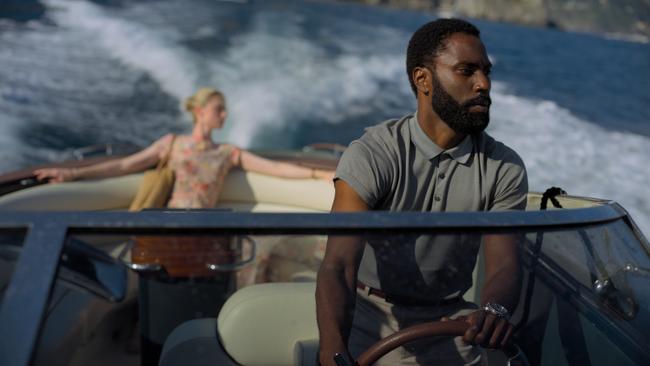
If only we’d gone to the movies to see Wonder Woman. From the get-go, the trailer promises a film for these uncertain times. We open on Gal Gadot and Kristen Wiig (a newcomer to the franchise) meditating on love and loss, then BAM! here’s our superhero in shining armour and wait – is that a comic book showdown in the corridors of the White House? Cut to a red carpet, Gadot in a floor-length white gown (because goodies wear white) slit to the thigh, against a pulsing New Order soundtrack and, although it was made long, long ago in 2019; Wonder Woman 1984 looks like all of our COVID-era escapist tropes at once.
But we are not here for Wonder Woman. We are here for Tenet, Christopher Nolan’s so-called time-travel blockbuster. Riding the escalator to Cinema 3 Gold Class (because if ever there was a time to be fancy it’s when comfortable social distance can be bought for a price), hanging from the ceiling is a life-size poster of Daniel Craig, immaculately suited as James Bond, heralding another much-hyped spy movie, No Time to Die, which, the poster insists, is “COMING APRIL 2020”.
Look at that, we’re time-travelling already. Tenet is The Film That’s Going to Save Cinema. The first blockbuster to gain a cinematic release since the pandemic took hold (staggered around the globe, it is launching here first — Melbourne TBC — then in the UK in a few days and the US early next month), it stands to draw nervous audiences back to the box office on the strength of its head-scratching trailers and the magnetic pull of director Nolan, who is claimed by comic book nerds and indie film aficionados alike as their guy.
Around 20 minutes in, we’re asked a question. What might be worse than a nuclear apocalypse? (Or indeed, a global pandemic? One wonders, reclining in the dark.) The answer comes and it is truly horrible: “Everyone and everything that’s ever lived – destroyed.” A Third World War that obliterates not only the now, but everything that was. (Think about it for a moment – yes, there’s a difference and, yes, it really does matter). So the medium fits the message: the stakes within this film – and for this film – couldn’t be higher.
Feeling stressed yet?
Christopher Nolan apparently pushed hard for a big-screen release of his $US200m-plus baby. Straight-to-streaming wasn’t an option, partly owing to Nolan’s romantic love for the cinema experience but also to justify aesthetically if not financially (time will tell) the parade of made-for-IMAX locations — there’s almost as much global travel as time travel in this film — and set-piece explosions. There are a lot of explosions.
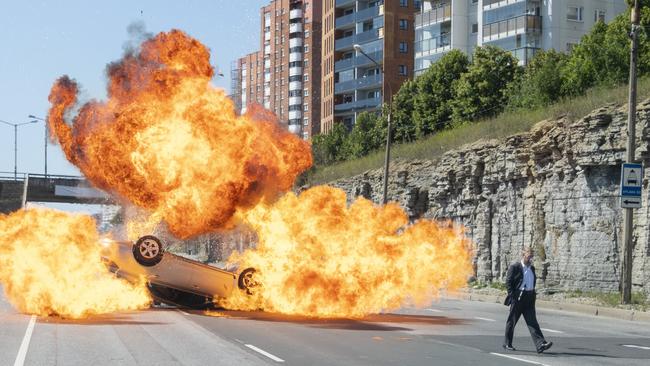
Tenet opens with a terrorist attack in a theatre during a concert (the lack of audience distancing is stark, one thinks, reclining in the dark). Machineguns spray into the orchestra. Endless streams of paramilitary troopers pour out of vans. Hostages are gassed (we’re not sure what with). A gunman stomps on a cello. Yes, a cello. If you’re feeling brittle merely reading this, it’s another experience set against music from Black Panther composer Ludwig Goransson, who has created not so much a score as a dangerously elevated heartbeat (Nolan’s heavy breathing is said to be woven into the recording). Total catastrophe is narrowly avoided thanks to our hero, The Protagonist (John David Washington), but he’s not exactly rewarded for his efforts and let’s just say it doesn’t feel like a win.
One the many reasons I struggled with Tenet is that the explanation given for all this early mayhem isn’t exactly satisfactory.
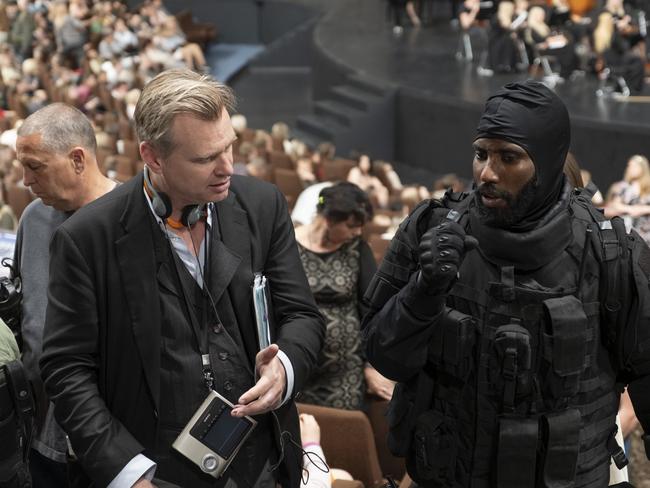
Not long after this big opener we find ourselves pondering that question about what, exactly, trumps a nuclear holocaust and talking about such hideous concepts as “inverse” weaponry saturated in radiation. As for everything that comes next, well, no more spoilers here, but things don’t exactly calm down.
There are two critical ingredients at the dark heart of Nolan masterpieces Inception, Memento and the Batman films — I refer to Batman Begins and The Dark Knight, and didn’t care for The Dark Knight Rises, so if that’s your favourite, well, we know where we stand now.
First, a heartbreaking loss and its consequential longing lends the plot structural integrity; and then there are the cerebral moments of exposition, which lead to gentle understandings that dawn brighter and resonate more deeply on multiple viewings.
These twin elements provide the Tarzan’s Grip that binds together the complex and at first seemingly disparate layers of a Nolan plot.
In his brilliant Dunkirk — said to be the antecedent of the time-travel conceit that goes into overdrive in Tenet — these ingredients are more abstract, but they’re still very much there (the loss and longing is in every soldier and at the film’s fiery climax; the exposition unfurls before us and of course, the story is based on history so come on people, how much more exposition do you need).
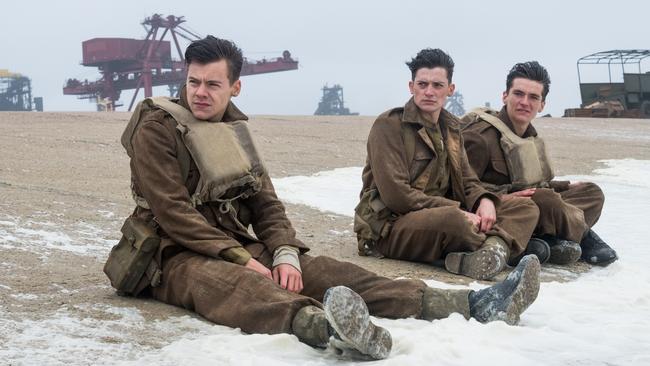
In Tenet, however, these particular characteristics are truncated, self-referential, and even mocking. Much has been already of the quip “does your head hurt yet?” from Neil, ally of The Protagonist, played to laconic perfection by Robert Pattinson, as he explains the internal logic of Tenet’s time-travel world.
Probably more telling is that the rest of this exposition unfolds as Neil falls asleep. Of course, there could be a clever, time-travelly reason for this (one does spring to mind — email me and we can talk about it).
Or it could also be that Nolan just got bored of telling us what was going on. Perhaps it was more fun to draw diagrams over and over, as the director enthusiastically recounts in a recent interview, to illustrate conversations about theoretical physics with Nobel prize winner Kip Thorne, and to find new ways to blow stuff up, than to flesh out his characters and their relationships in his script.
Tenet’s fleeting moments of levity come from Michael Caine in a cameo that is a cross between Alfred the butler and a Steve Coogan-Rob Brydon impersonation contest made manifest. And also from the rapport between Pattinson and Washington — who is the son of Denzel. Nolan has said he was halfway through writing Tenet when he saw Washington in Spike Lee’s Blackkklansman and all but gave him the lead in his movie. Washington possesses the gift of droll delivery and wears expensive suits extremely well but doesn’t have his dad’s action-man charisma.
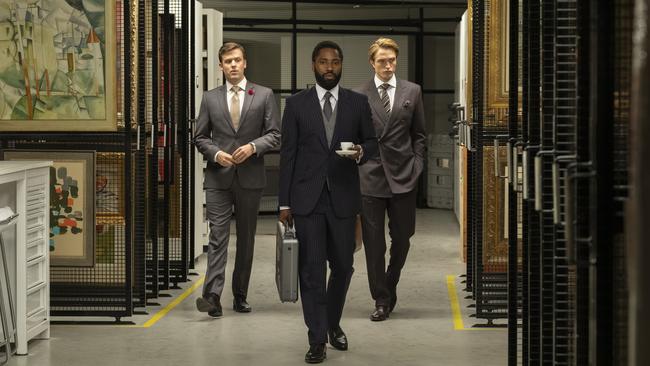
Arguably the chemistry between Washington’s The Protagonist and Pattinson’s Neil – “the ones protecting the world from what might have been”, as Neil puts it in a less sleepy but still flippant moment of exposition – is stronger than the chemistry between leading man and his supposed love interest, Elizabeth Debicki’s elegant art expert, Catherine Barton.
Debicki is wonderfully fragile-but-steely as a wife prowling around the gilded cage guarded by her husband, Andrei Sator, a Russian arms dealer/megalomaniac bent on global destruction of the infinite epoch variety, played by Kenneth Branagh. But in Debicki’s emotional scenes with Washington you can’t shake the feeling she is playing opposite some other guy. Branagh, meanwhile, plays a villain so grotesque it’s impossible to believe anyone so refined as she could ever have loved him.
And in the dark, we shift uncomfortably in our recliners.
As a fan of the Avengers/Back to the Future style of time travel, it’s possible I just didn’t get Tenet. A few hours after we’d left the cinema a lone penny dropped and I realised precisely how it was that Neil came to know that The Protagonist only ever drank Diet Coke on the job. This was momentarily gratifying, the kind of pay-off Nolan films usually deliver in orders of magnitude.
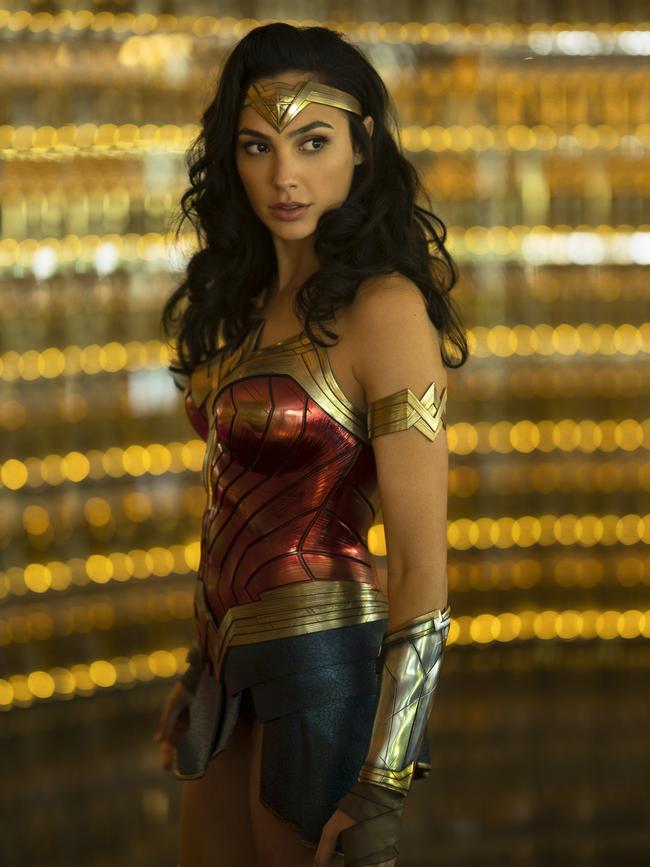
On its opening weekend, critics diverged sharply. In the UK, The Times’ Kevin Maher gave Tenet five stars in a review titled “a delightfully convoluted masterpiece” but doesn’t really make the case for such a lavish rating except to say “the real joy of the film … is the sheer spectacle. Nolan, famously averse to computer effects, throws literally everything at the screen. There’s a Boeing 747 crashing into a warehouse and exploding on camera. There’s a thrilling breakneck motorway heist involving three juggernauts, multiple car smashes and a rapid-fire shootout”. The Telegraph, too, gave out a perfect score and declared Tenet likely to revive the British box office if only because you need to see it three times. But another, less happy, reviewer branded the film a “palindromic dud” and the BBC was similarly underwhelmed. This newspaper’s last word will come from David Stratton in Saturday’s Review pages. At the moment Rotten Tomatoes has the film at 80 per cent. OK, but you wouldn’t want to bet the future of cinema on it. As for the experience of going along to see the first mainstream blockbuster of the year – an uncomfortable reality when we are well and truly past 2020’s halfway mark – how much you enjoy it will depend on your appetite for ambiguity, uncertainty, violence that might or might not be mindless if you think hard enough about it; or the feeling that you’re stuck in a loop while simultaneously hurtling toward armageddon.
It’s close to the end of the film when one character farewells another with the line “see you at the beginning”. Nolan is too clever, and knows his fans too well, for this to be imbued with a singular meaning. He knows many of them will be reclining in the dark of a Tenet screening again. Possibly as early as tomorrow. But for the first time, at least when it comes to a Nolan film, I’m not sure I have the nerve to go back.


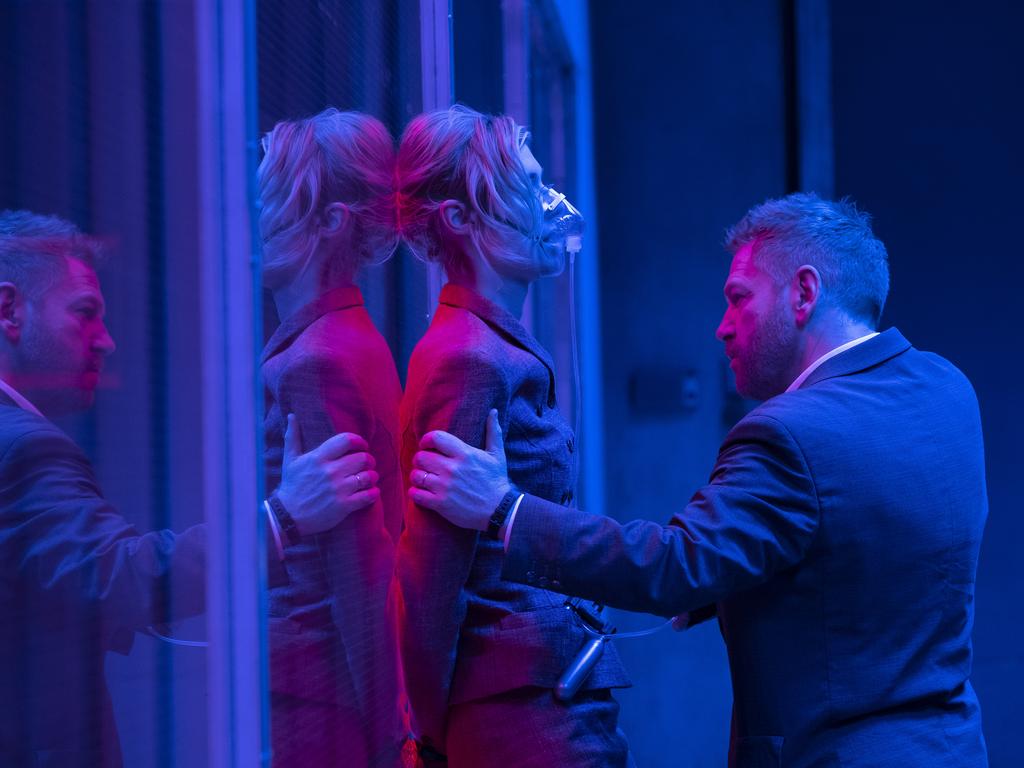

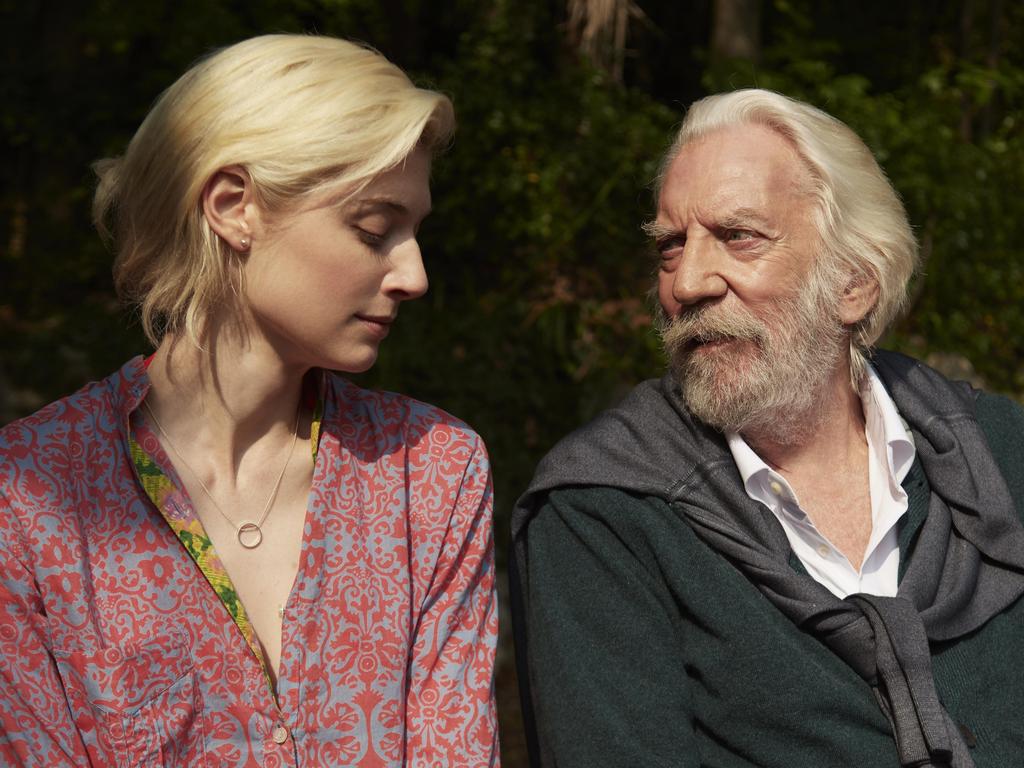
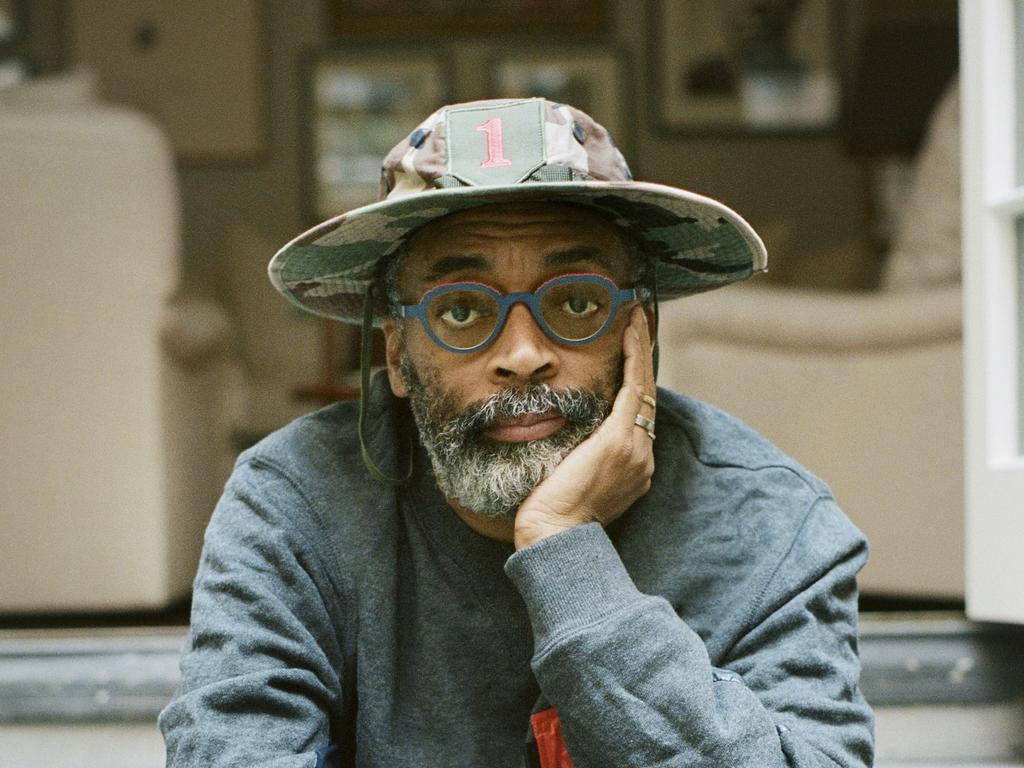
To join the conversation, please log in. Don't have an account? Register
Join the conversation, you are commenting as Logout